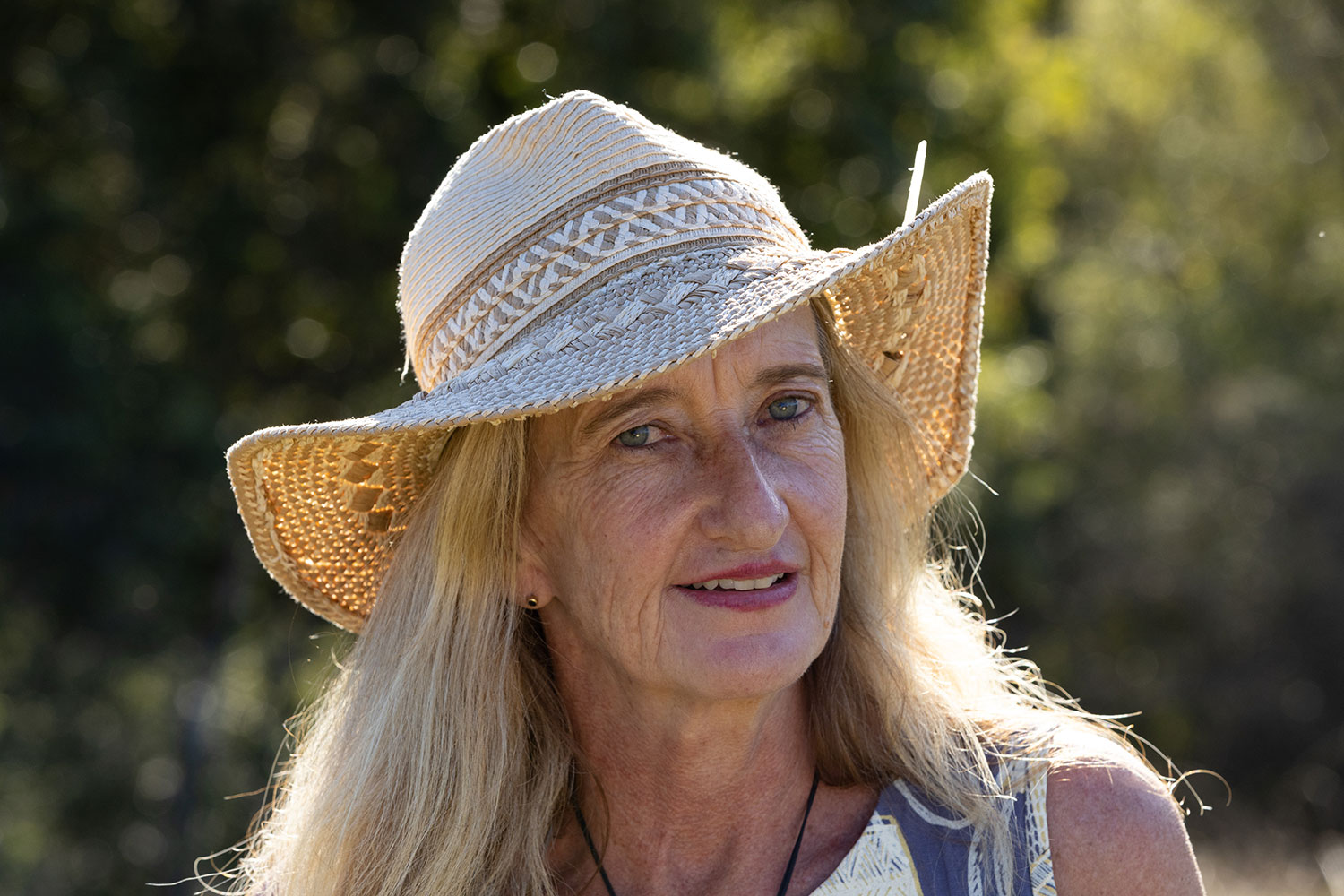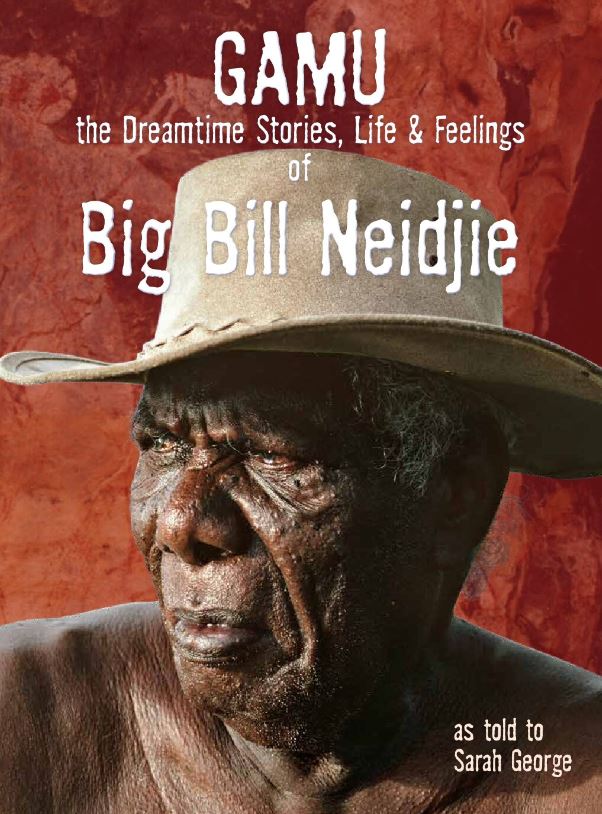Aboriginal and Torres Strait Islander listeners are advised that the following program contains information about or voices of people who have died. Big Bill Neidjie asked Sarah George to publish the stories recorded in this book so they could be enjoyed long after his passing. Big Bill was renowned for his generous sharing of culture, and his family respected his wishes to allow this information and his image to continue to be used in the manner he intended after his passing. Sarah returned to Kakadu and gave nearly 40 copies of the book to Big Bill’s descendants before launching it. Images on this show page embody the ritual knowledge of the Ulbu Clan of Mount Borradaile. The book and images were created with the consent of these custodians. Dealing with any part of the images for any purpose that the custodians have not authorised is a serious breach of their customary laws and may breach the Copyright Act 1968 (Cth). For enquiries regarding the permitted reproduction of these images, please contact Sarah George.
In this episode of Biographers in Conversation, Sarah George chats with Gabriella about the choices she made while writing GAMU: The Dreamtime Stories, Life and Feelings of Big Bill Neidjie. Known as Kakadu Man, Aboriginal elder Big Bill was instrumental in the establishment of the World Heritage-listed Kakadu National Park and he was deeply committed to preserving his land, culture and mother tongue. GAMU is the most comprehensive book of Big Bill Neidjie’s stories ever published. It includes 240 photographically illustrated pages of his Dreamtime stories, personal history, and his thoughts and feelings regarding problems faced by Aboriginal communities.
Sarah George introduces us to Indigenous elder Big Bill Neidjie, who is known as Kakadu Man. She reveals the role of Dreamtime stories in Aboriginal spirituality and culture and why Big Bill wanted Dreamtime stories recorded and shared for future generations of Indigenous people. He also explains why it is crucial for non-Indigenous people to understand the cultural and spiritual significance of Dreamtime stories. Sarah conveys the meaning of the Indigenous word GAMU and why Big Bill chose this title for his book.
Sarah George has been entrusted and guided by Big Bill as he unlocks the gates to a secret country. Now, you too can see a new landscape and the spirituality that hangs subtly like a mist, aware of the ageless philosophy that he lived by. This book will enable many to witness the path of his ancestors, the songlines travelled by the spirit beings, ever so strongly and with a rightful first nations narrative.
Rhoda Roberts AO
“I’m just talking on this tape, making my story. Later on, in ten or twenty years’ time, you might read this story. If you pick up this book and read this story, think about it. It’s important all this work. It’s all got meaning.
Bill Neidjie OAM
This book is mesmerising. As you read this book, this life story, you can hear Big Bill’s voice in your mind. You can see him in your imagination. You can enjoy his humour and feel his warmth when he talks about his family and country. It is like sitting beside him and just quietly listening. It is not all warmth and reinforcement of culture. Big Bill also talks about the pain and some of the real challenges like ‘grog’ facing our communities. One of the stunning things about this book is how the narration by Big Bill reveals his Dreaming and how it is real, alive and explains life. The Dreaming contains lessons about the creation of the world around us and explanations of its morality.
The Hon Linda Burney MP

Mark McKenna is one of Australia's leading historians. A Professor Emeritus, History at the University of Sydney, he is the author of several prize winning books, including Looking for Blackfellas' Point, which won the Douglas Stewart Prize for Non-Fiction and Book of the Year in the 2003 NSW Premier's Literary Awards. In 2011-12 An Eye for Eternity won five national literary awards, including the Prime Minister's Prize for Non-Fiction. Mark’s essays and articles have been widely published in Australia and overseas.
Learn more:
Big Bill and a video preview of GAMU: Gamu — The Dreamtime Stories, Life & Feelings of Big Bill Neidjie — Cyclops Productions
ABC Sunday Extra interview: https://www.abc.net.au/listen/programs/sundayextra/tytmm-susan-george/102341108




